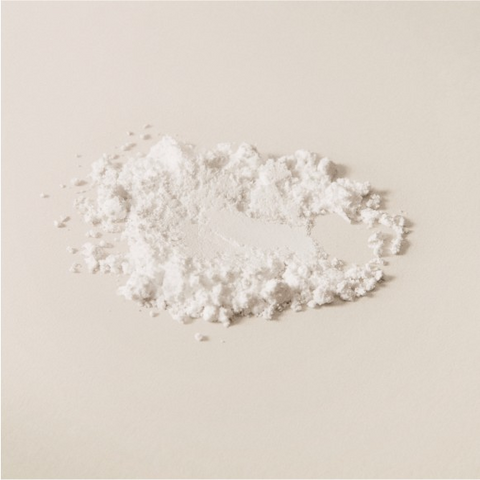With 30-50% of US adults reporting temporary sleep challenges, it’s no surprise that more people are turning to Melatonin to tackle their sleep issues. Whether you’ve taken melatonin after long travel days, a difficult shift work, or to cope with the occasional tossing and turning at night, the morning after grogginess may be all too familiar. However, the next day’s grogginess after self-dosing melatonin doesn't necessarily suggest Melatonin isn't a suitable solution. It might just be a signal to fine-tune your dosage so you can steer clear of the uncomfortable grogginess and still enjoy the sleep-supportive perks.
In this article, we'll dive into the reasons why melatonin could lead to grogginess, explore this particular side effect, and share simple shifts you can make to your melatonin routine to avoid grogginess altogether while still getting quality sleep.
Does Melatonin Make You Groggy The Next Day?
Yes, melatonin can leave you feeling groggy the day after consumption. This phenomenon is not a figment of imagination; it has a scientific basis.
When melatonin is taken in a higher dose than needed, it can linger in the body for longer than necessary, leading to that uncomfortable and often persistent, groggy sensation as you attempt to start your day.
Temporary Grogginess and Additional Symptoms
Grogginess is not the only side effect of taking a melatonin dietary supplement. Alongside the morning fog, you may experience symptoms like headaches, dizziness, nausea, daytime sleepiness, and moodiness. These are usually indicators that you've taken too much melatonin or consumed it too late, disrupting your body's natural sleep-wake balance. However, if you do experience any of these melatonin side effects, it's helpful to know they typically go away on their own within the next day.
Now that we’ve covered the symptoms of taking too much melatonin, let's zoom out and explore its broader role in the body to better understand how it causes grogginess.
The Role of Melatonin in Setting Your Sleep-Wake Cycle
Melatonin is a hormone naturally created in the brain that determines your circadian rhythm, letting you know when it's time to wind down versus stay awake. However, disruptions of daily life — such as exposure to light in the evenings or sudden shifts to your wake-up time can unfortunately block melatonin from being produced in your body. This is when it makes sense to self-dose with a melatonin dietary supplement — to help bring your circadian rhythm back into balance. But what is it about melatonin that causes daytime sleepiness?
Why Melatonin Makes You Groggy
While melatonin is a naturally occurring hormone that is linked to our sleep cycle, it can trigger grogginess under certain circumstances:
- Dosage: So, how much melatonin should you take exactly? The body naturally produces .3mg of melatonin, so supplementing with any dose larger than that may overwhelm the body with more melatonin than it needs. The excess melatonin then floods the bloodstream, causing that unwelcome feeling of grogginess the next day.
- Timing: Melatonin can take around 4-10 hours for the body to process, so if it’s taken too late at night, at larger doses, it can result in lingering melatonin levels upon waking, making grogginess inevitable.
- Extended-Release: Extended-release formulas slowly make melatonin available throughout the sleep cycle. If consumed too late at night, with not enough time for the body to process the melatonin, it can make you groggy upon waking.
- Interactions with Herbs, Supplements, and Medications: While too much melatonin, taken too late and in extended-release amounts can cause grogginess, certain medications, herbal supplement variations, and vitamins can further amplify this effect. If you’re groggy after taking melatonin and have particular health challenges that you manage with herbs, supplements, or medications, it’s essential to run your melatonin use by your health provider to learn if it's safe to use.
Understanding these intricacies allows for a personalized approach to melatonin supplementation that ensures its sleep-supportive benefits are harnessed without experiencing unwanted grogginess.
How to Prevent Grogginess With Melatonin
Conventional melatonin supplements often surpass the body's natural range, flooding brain receptors and leading to the notorious "melatonin hangover" feeling the next morning. To overcome melatonin grogginess, consider these shifts:
- Opt for Microdosing: Choose a melatonin supplement microdose, preferably less than 1mg, to stay within the body's natural range without causing grogginess. Studies show that a microdose of 0.3mg is more effective than larger doses in reducing the time it takes for Melatonin to work and help you fall asleep. Skip the megadoses and extended-release formulas for something that more accurately reflects your body’s natural melatonin production.
- Time Your Microdose: Take the microdose 30 minutes before bedtime or several hours (2-4) to ensure it doesn't disrupt your desired sleep schedule. Dosing within this timeframe has shown no changes to sleep patterns or daytime drowsiness.
- Include Other Sleep Nurturing Supplements: There are lots of natural supplements and vitamins for sleep on the market today. Consider combining melatonin with other sleep-supportive ingredients like magnesium and L-theanine. Inadequate levels of magnesium can disrupt your circadian rhythm, decrease natural melatonin production, and trigger sleep challenges. Meanwhile, L-theanine can support overall sleep quality. By harnessing the power of multiple supplements for better sleep, you can give yourself a better chance of a good night’s rest without risking the possibility of melatonin grogginess.
Take Sleepy Magnesi-Om, with its microdose of phytomelatonin, magnesium, and L-theanine for travel, shift work, and nights you have trouble falling asleep. Drinking this melatonin and magnesium powder helps to relax muscles, fall asleep fast, and sleep deeply without a groggy feeling. It’s a situational sleep supplement that is bioidentical to human Melatonin, making for optimal absorption and optimized calm before bed. Plus, it’s sustainably sourced, dissolves in water instantly, tastes like organic blackberries, and has zero sugar.
- Ensure Adequate Time for Sleep: If you choose to supplement with melatonin, it’s essential you have enough time available to sleep after taking it so that your body can process it in full. It typically takes 4-8 hours to move through the body and up to 10 hours for higher doses and extended-release formulas. If you’re struggling to sleep but short on time, skip the melatonin to avoid grogginess the next day.
- Double-Check Suitability: Chat with your healthcare provider to confirm melatonin works for your sleep goals and won't interfere with any medication you may be taking. Certain health conditions, including pregnancy, breastfeeding, autoimmune conditions, impaired liver function, and active dialysis, may warrant avoiding Melatonin supplementation.
While there's no evidence of developing tolerance to melatonin, taking a dosage that aligns with your body's needs is highly recommended to prevent grogginess and foster quality sleep.

Takeaways
Melatonin is a worthwhile ally for sleep, but its use comes with some nuances. Morning grogginess, one of its potential side effects, shows us just how important it is to supplement with it precisely. Grogginess is simply one among several mild adverse effects caused by too much melatonin, too late at night. However, microdosing, strategic timing, and synergistic supplementation can help you sidestep this unpleasant effect. As you navigate melatonin supplementation, remember to chat with your healthcare provider, respecting your unique state of health. By integrating these insights, you can unlock melatonin's sleep-enhancing powers and avoid its groggy side effects.
Sources
- Journal of Clinical Sleep Medicine, Clinical Practice Guideline for the Pharmacologic Treatment of Chronic Insomnia in Adults: An American Academy of Sleep Medicine Clinical Practice Guideline https://jcsm.aasm.org/doi/10.5664/jcsm.6470#d3e629
- Springer Link, Adverse Events Associated with Melatonin for the Treatment of Primary or Secondary Sleep Disorders: A Systematic Review https://link.springer.com/article/10.1007/s40263-019-00680-w
- Wiley Online Library, Melatonin pharmacokinetics following two different oral surge-sustained release doses in older adults https://onlinelibrary.wiley.com/doi/10.1111/j.1600-079X.2011.00958.x
- National Center for Complementary and Integrative Health, Melatonin: What You Need To Know https://www.nccih.nih.gov/health/melatonin-what-you-need-to-know
- National Library of Medicine, Effects of low oral doses of melatonin, given 2-4 hours before habitual bedtime, on sleep in normal young humans https://pubmed.ncbi.nlm.nih.gov/8843534/
- National Library of Medicine, The Safety of Melatonin in Humans https://pubmed.ncbi.nlm.nih.gov/26692007/
- National Library of Medicine, Melatonin https://www.ncbi.nlm.nih.gov/books/NBK534823/












